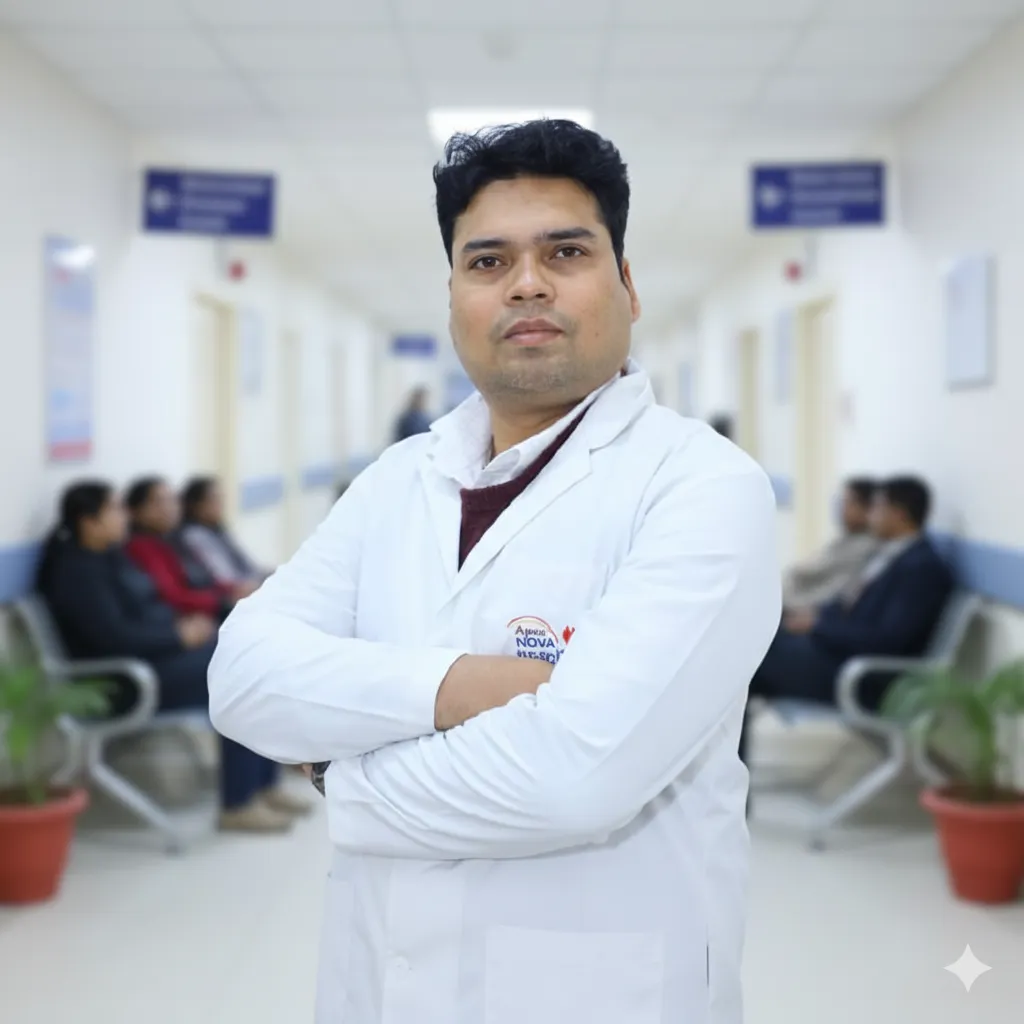A hernia occurs when an internal organ or fatty tissue pushes through a weak spot in the surrounding muscle or connective tissue. This often creates a noticeable bulge or lump, most commonly in the abdomen or groin area. Common types include Inguinal (groin), Umbilical (belly button), and Incisional (from a previous surgical scar) hernias.
While some hernias are not immediately life-threatening, they do not go away on their own and can lead to serious complications if left untreated. Seeking timely medical advice is crucial for preventing pain and potential emergencies.
Common Causes and Risk Factors for Hernias
Hernias are caused by a combination of muscle weakness and strain. Key contributing factors include:
- Chronic coughing or sneezing.
- Straining during bowel movements (constipation).
- Heavy lifting or strenuous exercise.
- Obesity or sudden weight gain.
- Pregnancy.
- A congenital weakness present since birth.
Signs and Symptoms of a Hernia
The most common sign of a hernia is a visible bulge or lump. Other symptoms may include:
- A feeling of heaviness or pressure in the affected area.
- A dull ache or pain that worsens when standing, lifting, or straining.
- The bulge may disappear when you are lying down.
Seek immediate emergency care if you experience sudden, severe pain, nausea, vomiting, or if the hernia bulge turns dark, red, or purple. This could be a strangulated hernia, which is a medical emergency.
Accurate Hernia Diagnosis at Nova Hospital
A hernia is usually diagnosed through a simple physical examination. Our experienced general surgeons will check for a bulge in the affected area and may ask you to stand and cough to make the hernia more prominent. In some cases, to confirm the diagnosis or rule out other issues, we may recommend:
- Ultrasound: A non-invasive imaging test to get a clear picture of the hernia.
- CT Scan: Provides detailed images to check for complications.
Advanced Hernia Treatment & Surgery in Meerut
While lifestyle changes can manage symptoms, surgery is the only effective and permanent treatment for a hernia. The goal of hernia surgery is to push the protruding tissue back into place and repair the weakened muscle wall, often reinforcing it with a surgical mesh.
Laparoscopic Hernia Repair (Minimally Invasive Surgery)
At Nova Hospital, we specialize in laparoscopic hernia surgery in Meerut. This advanced "keyhole" technique is the preferred method for most hernia repairs. Its benefits include:
- Smaller Incisions: Just a few small cuts instead of one large one.
- Less Pain: Significantly reduced post-operative discomfort.
- Faster Recovery: Quicker return to work and daily activities.
- Minimal Scarring: Better cosmetic results.
Meet Our Experts in this Field
Why Choose Nova Hospital for Your Hernia Surgery?
When looking for the best surgeon for hernia surgery in Meerut, our hospital stands out for its commitment to excellence and patient safety.
- Expert Laparoscopic Surgeons: Our surgical team is highly skilled and has extensive experience in performing advanced minimally invasive hernia repairs.
- State-of-the-Art Operation Theatres: We are equipped with the latest high-definition laparoscopic technology for enhanced precision and safety.
- Comprehensive Patient Care: We provide thorough pre-operative counseling and dedicated post-operative care to ensure a smooth recovery.
- 24/7 Emergency Services: Our emergency department is fully prepared to manage hernia-related emergencies like strangulation or obstruction.
Frequently Asked Questions
Not always. Small hernias that don't cause any symptoms may be monitored. However, surgery is typically recommended for hernias that are painful or growing larger to prevent serious complications.
It is a minimally invasive procedure where a surgeon operates through a few small incisions using a camera (laparoscope) and specialized instruments. It is less painful and allows for a much faster recovery than traditional open surgery.
With laparoscopic surgery, most patients can go home the same day or the next day. You can typically return to light activities and desk work in 1-2 weeks. Strenuous activity and heavy lifting should be avoide
You will be under anesthesia during the surgery and will not feel any pain. Post-operative pain is managed with medication and is significantly less with laparoscopic surgery compared to open surgery.
The risk of recurrence is low, especially when a surgical mesh is used to strengthen the repair. Following your surgeon's post-operative instructions carefully, especially regarding lifting, can further reduce this risk.
You can book an appointment with our expert general surgeons by calling our hospital's helpline at +91-70550 06662.

